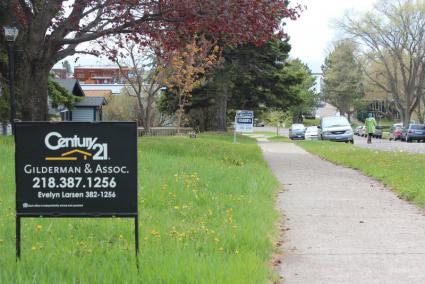Many Cook County property owners see an increase as valuation notices arrive
Many Cook County homeowners saw their property values go up for taxes payable in 2023, according to local officials.
“Some property types saw more of an increase than others,” Cook County Assessor Bob Thompson said during a May 3 interview on WTIP. “Our average increase in Cook County was 31 percent.”
Thompson said many of the increases were observed on valuation notices sent by the county in late April. Each spring, tax and property value statements are sent out by the county assessor’s office. Thompson said a significant reason for the increase in property values is due to a booming real estate market in Cook County.
Thompson said there were about 600 properties that sold in Cook County in 2021, nearly double the 323 home sales in Cook County from 2020. Most homes in Cook County are selling for their listing price or higher at this time, with some properties selling nearly as soon as they hit the market.
The relationship between property values and real estate is a complex one, though an easy way to think of it is that if homes and land are selling for a higher price than their appraised values, it is likely to increase similarly priced homes throughout the county, according to the county assessor.
Some in the community are pointing to short-term rentals, also referred to as vacation rentals, as a reason for the increase in property values in Cook County. Thompson acknowledged that short-term rentals are likely impacting the housing market locally, but could ultimately play a unique role when it comes to how much taxes a homesteaded property pays.
“The vacation rentals may play a role in some of the activity that’s going on in the market,” Thompson said. “For the assessor’s office, we look at all the sales the same, we value properties all consistently. The difference between those properties is that they pay a different classification rate. Part of that is a result of a resolution that the board of commissioners for Cook County put forward back in 2019, to have those classified as not a seasonal cabin, which ended up with those properties picking up about seven percent additional of the levy more than they would have two years ago.”
Furthermore, Thompson said it’s important to note that an increase in property values does not always directly relate to an increase in property taxes.
“What we always try to explain to people is if the assessor’s office was to double every property value in the entire county, that doesn’t mean their taxes go up,” Thompson said. “In fact, they would stay the same in that scenario. What makes the taxes go up is when the levy increases at the end of the year.”
Other discussion in the community regarding the valuation notices that were recently sent includes changes to the homestead tax credit for some property owners. Thompson said approximately 12 percent of homestead properties completely lost their market value exclusion. That exclusion goes away, Thompson explained, when a property is valued over $413,800.
As it stands currently in Minnesota, the more a property is worth, the less the homestead credit will be.
“(State officials) have it indexed where the maximum exclusion is on a homestead that’s valued around $76,000,” Thompson said. “Back when this was created, the median home price in Minnesota was not what it is today. And they wanted that exclusion to provide more benefit to the lower valued homesteads and less benefit to the higher valued homesteads.”
WTIP’s Joe Friedrichs spoke with Thompson about taxes and property values in Cook County in the May 3 interview. Audio below














